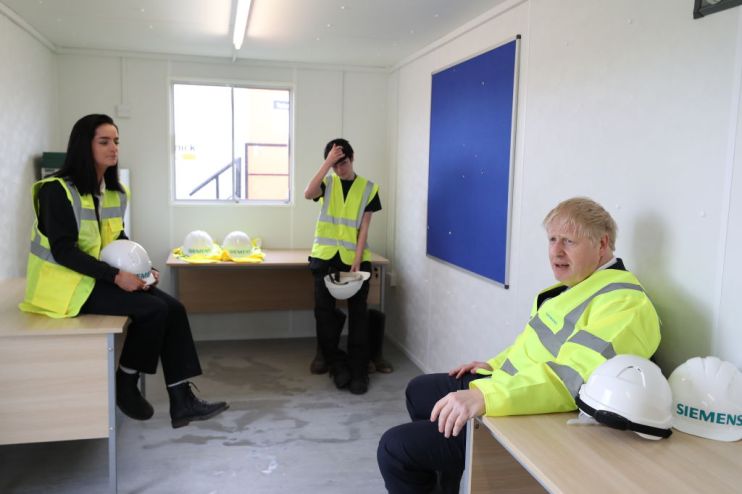The rallying cry of levelling up has been cash-strapped and watered down

People deserve to live in a country where life is not a postcode lottery, says Michael Gove in the foreword of the much awaited flagship plan for levelling up unveiled yesterday. This is one of those recycled truisms we hear again and again in politics. The same could be said for much of the white paper.
The 332-page document outlines an encyclopedic plan to change the spatial economics of the country, focusing on 12 set missions that will have to be achieved by 2030 and will receive “status in law”. Increasing productivity, reducing crime, boosting well-being, improving transport connectivity, you name it, they’ve got it. The last mission – devolving power from Whitehall to regional and local authorities “if they wish to” – is the pillar of this entire grand strategy.
The metrics for monitoring progress on the 12 missions are finely detailed, and this is a good thing – apart from the perplexing metrics of “pride in place”. The government will also set up a levelling up advisory council to oversee performance. “This is the first time a government has placed narrowing spatial economic disparities at the heart of its agenda before”, boasts the paper.
Not everyone is completely convinced by this happily ever after story. “This is not a new challenge. Every British government since the Second World War has tried to do the same”, rebuked Jonathan Werran, chief executive of the think tank Localis. In terms of specific policies, Ciaran Gunne-Jones, head of Economics at Lichfields, noted a striking resemblance with the old industrial strategy. “The system is completely broken, and he’s given us more of the same”, thundered Shadow Secretary Lisa Nandy yesterday in the House. She accused Gove of focussing too much on the sparkling histories of Rome and ignoring the work actually being done in places like Wigan and Grimsby.
Implementation, of course, is far from straightforward; the UK doesn’t have a tradition of long term investment in regional and subregional areas like Germany or the Basque Country, which have both undergone a similar transformation. “Learning from the lessons of history, how does an economic programme survive the next 2 years, let alone the next two decades?”, asks Werran.
The document sets out a blueprint for the future, asking the electorate to trust the Conservatives with the most precious political tool: time. Boris Johnson is walking a tightrope; trust in him – and his vision – has faltered, if not completely collapsed. And yet, he’s standing in front of the electorate with puppy dog eyes, white paper in hand, basically saying “I’ve made mistakes, but if you trust me I’ll make you richer, healthier and happier. All I need is time”.
Where Brexit bore the Tories to their 2019 victory; levelling up seeks to do this again. Johnson was able to convince voters that even after a decade of extensive cuts to local services, he would revive them.
And ay, there’s the rub. The paper was meant to be released months ago, but was delayed as a result of wrangling between Gove and Chancellor Rishi Sunak over funding. Sunak was never going to invest huge sums of money in such a long-term project, preferring to give out pots of money that are more easily quantifiable in the short term. As a consequence, there is virtually no new money spent on levelling up. Everything comes from the spending review and existing funds.
The foreword of the white paper mentions Renaissance Florence as an example to follow, but that particular period of history was quite literally drowning in gold, with the wealthiest citizens investing in the arts and in social development. There can be no chit-chat of an English renaissance 2.0 without funding of huge proportions.
“The challenge for Labour is how they approach the mechanism of devolution, whether they could continue to offer this menu and support it in the future”, says Anthony Breach of Centre for Cities. According to Breach, there is a lot to applaud in the intentions of the white paper, and he is right; it’s hard to think of why anyone would be against a fall in crime and better standards of living. The divergence between the two parties will be in how to get there and where to put the geographical emphasis.
The UK is desperately in need of a plan to revitalise left behind areas. The surge in support for Johnson’s levelling up agenda is proof of this enough. But they will need significant economic growth, new money and long-term political commitment to the project. Finding the money is a quandary enough, but whether or not voters – especially those in Red Wall constituencies –
will put their faith in a programme built primarily on principles derived from an Oxford Classics degree is an epic political gamble.